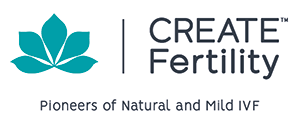Post-pandemic IVF: Why we need to make IVF treatment more accessible and affordable
By Dr Geeta Nargund, Medical Director at CREATE Fertility
For many couples and women, starting IVF treatment is one of the biggest – and perhaps most daunting – life decisions they will make. It can be an emotionally and physically stressful process, and at this important life juncture it’s vital that we work to protect women’s health and safety.
What’s more, in today’s tough economic climate, the need for greater accessibility and affordability takes on a renewed importance. The opportunity to become a parent is, at its core, a human right, and should never be the preserve of just a lucky few.
During COVID restrictions, and as we look beyond the pandemic context, it’s our duty to do all we can to ensure the processes we have in place support us in meeting these goals. While initially borne of necessity, the industry-wide movement to online and digital IVF services has been transformative and there are a number of new steps all clinics can take to ensure that accessibility, affordability and safety remain top of the agenda.
Getting the clinic to come to you
In many instances the first step can be the most difficult. The shift to online consultations and appointment booking has helped many women and couples have the confidence to start their fertility journey earlier than they might have otherwise.
Especially during the pandemic, it is likely that journeying into a clinic might be intimidating for patients for some time, and so this is a format that clinics should look to maintain going forward, even once restrictions lift.
Positively, the pandemic has also prompted a number of clinics to rethink the way in which they share information and engage with patients. Across the board, clinics have begun to offer information more readily on their websites, particularly with regards to treatment types, costs and the process itself. Local clinic opening evenings can be replaced with webinars for prospective patients, offering important insight into how our clinics work and what they can expect from the process.
The accessibility benefits unlocked through this shift are significant. It removes secondary costs like transport or childcare, which can all too quickly stack up. Coupled with the fact that previously many may have had to take a whole day off work for appointments, the time and cost benefits of embracing the move to digital are evident. Keeping these resources going post-pandemic will allow us to reach a far broader spectrum of people in need of our services.
A patient-first approach throughout
A safety, affordability and accessibility-first approach doesn’t have to stop at the initial treatment phase; rather, it should be maintained throughout the process. For instance, while in-person appointments are of course vital for scans and examinations, those that don’t require direct contact could be moved online.
With a typical IVF cycle requiring 5-6 visits over a few weeks, regular in-person attendance can add another layer of stress at an already difficult time. Virtual consultations are not just COVID secure but also less time consuming, and enable patients to access the clinic from a much wider area. It’s important to recognise that many other industries have shifted their entire ways of working onto virtual platforms, so there’s no reason – other than for physical procedures – IVF can’t follow suit.
Of course, the way in which the process is managed should ultimately be adapted in line with patients’ preferences. Regular clinic contact might still be the preferred format for some patients. But the takeaway here is that the process can be tailored and adapted to make the process easier and more cost-effective.
The future of treatment
COVID has forced us to adapt and evolve across so many areas of our lives, and while it has been incredibly difficult in many ways, there are some clear benefits.
In assessing which benefits to move forward with in the IVF process, we must take a fully patient-centric approach that places their right to safety, affordability and accessibility at the heart of every decision.
As fertility specialists, our main priority is, and always will be, the wellbeing of the patient and future potential child, so any measures we can be taking to help us meet and exceed this ambition shouldn’t be left at the door post-pandemic.
Dr Geeta Nargund is the Medical Director at CREATE Fertility.
